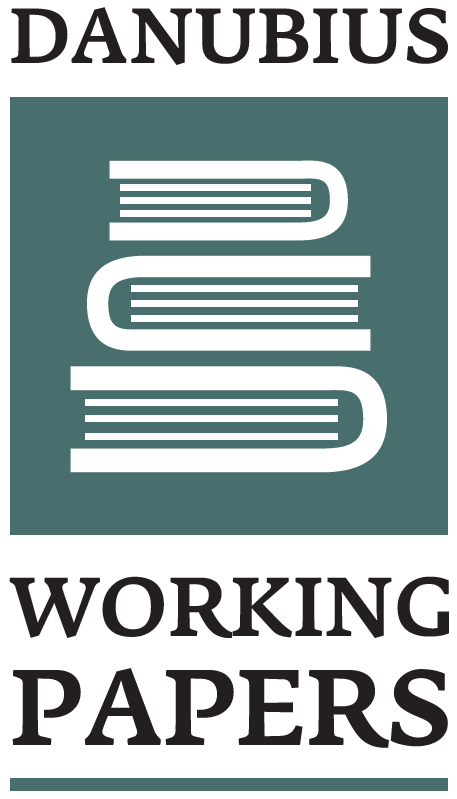About the Journal
|
|
Frequency: 1 issue per year (September) Author Guidelines |
The journal Danubius Working Papers is published since 2019 under the coordination of the Research Center "Theoretical and Applied Economics" of Danubius University of Galati, Romania has the mission to distribute the results of scientific research of Danubius University' students and master students.
The thematic studies will encompass legal doctrine, jurisprudence, philosophy and law, the debates, the notable results of scientific investigations or the reviews to genuine theoretical successes.
DWP is a blind peer-review journal. All research articles in this journal undergo rigorous peer review, based on initial editor screening and anonymous refereeing by at least two anonymous referees. The scientific coordinator will be the first to analyze the paper.
Peer Review Process
DWP is a blind peer-review journal. All research articles in this journal undergo rigorous peer review, based on initial editor screening and anonymous refereeing by at least two referees.
The blind peer review process is essential in terms of quality as the articles that have undertaken the process are considered highly credible because they have undergone scrutiny by experts with particular knowledge in the topic. The primary aims of blind peer review are 2-fold: to decide whether or not an article should be published (based on quality and relevance to the journal), and to improve the article before publication.
Internal Peer Review Process
All submissions first go through an internal peer-review process. Each submission is reviewed by the editor assigned by the editorial secretary who makes an initial decision to send the manuscript out for peer review or to reject without external review. Articles can be rejected at this stage for a variety of reasons such as similarity with a recently published article, the topic is outside of the scope of the Journal, little new information is provided, important flaws in the scientific validity, or an unprofessional presentation. This process normally takes a week. If the editor believes the article may be of interest to our readers, it is then sent out for external blind peer review.
External Blind Peer Review Process
The editors upon consulting the editorial board identify potential reviewers based on their expertise in the field, rigor and scientific methodology. Two reviewers are thus identified for each submitted manuscript. The reviewers are selected also by selecting from our database reviewers whose past contributions recommend them by their quality reviews and fit into the time frame.
Potential reviewers are contacted by the editorial secretary about their availability and interest in reviewing. Inquiries to reviewers are sent by e-mail, which includes the manuscript abstract and the assignment deadline. When prospective reviewers agree to serve, they are permitted access to the manuscript and reviewing instructions, without however being permitted to know the author(s)' name. The reviewers’ names are also unknown to the manuscript author(s). The time frame for making their decision is a maximum of three weeks. After the reviewing process, authors receive the decision from the editorial board as follows: accepted, accepted with slight changes, revise and resubmit, rejected.
This journal provides immediate open access to its content on the principle that making research freely available to the public supports a greater global exchange of knowledge.
Danubius Journals Platform publishes fully open access journals, which means that all articles are available on the internet to all users immediately upon publication, without requiring a subscription to the journal. The journals are online first which allows authors, within a set deadline, to revise their posted article before printing. All the articles undergo blind and editorial peer-review and quality control.
The articles that are published in the journal are distributed under CC BY NC license. Users can distribute, remix, tweak, and build upon our articles, even commercially, as long as they are credited for the original creation.
Benefits of open access for authors include:
- Free access for all users worldwide;
- Authors retain copyright to their work;
- Increased visibility and readership worldwide.
This journal provides immediate open access to its content on the principle that making research freely available to the public supports a greater global exchange of knowledge.
All the articles before being submitted to the peer review process are being verified by an Anti-Plagiarism Software, www.sistemantiplagiat.ro, and there are accepted only the ones that do not exceed 10-15% of information taken from other sources.


